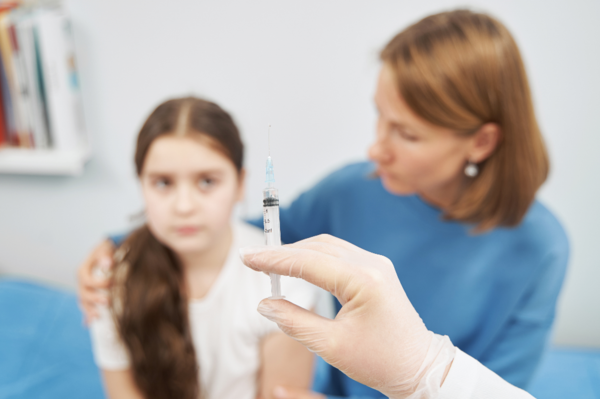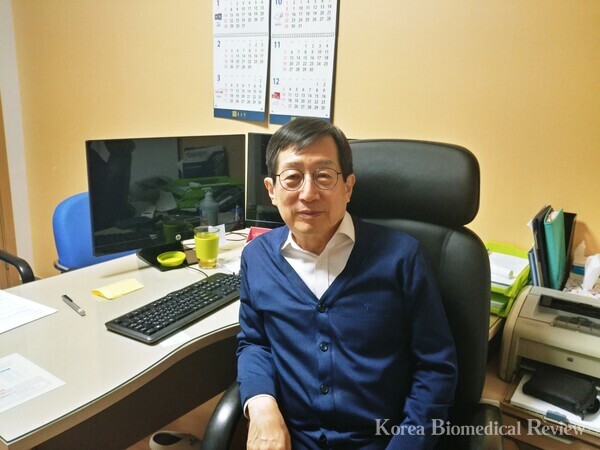Inside the Sowha Children's Hospital in Seoul on a crisp Nov. 29, a concerned mother of a 9-year-old boy shared her worries.
"The cost of growth hormone injections is a real concern, but I'm worried that if I postpone it, my son might resent me later. That's why I came to see the doctor for a prescription."

She is one of many parents in South Korea attempting to obtain expensive, non-reimbursable growth hormones to increase their children's height, even if they are not pathologically small.
In Korea, reimbursement for growth hormone treatment is limited to cases of pediatric growth hormone deficiency, Turner syndrome, pediatric chronic kidney failure, Prader-Willi syndrome, and short stature due to Noonan syndrome.
Children diagnosed with any of these conditions are only required to pay 5 percent of the total cost and the rest is paid by the National Health Insurance Service (NHIS). This results in an annual medical expense of approximately 350,000 won ($264)- 500,000 won ($377) per child for growth hormone injections.
‘In growth hormone prescriptions, non-reimbursable use is 97%’
However, a concerning aspect emerges as 97 percent of these growth hormone injections were prescribed non-reimbursable. This suggests that the majority of these injections were administered to healthy children solely for height augmentation with an annual cost up to about 10 million won ($7,548) depending on a child's weight.
According to data obtained by Rep. Kim Young-joo of the Democratic Party of Korea from the Ministry of Food and Safety, over the past three years, 10.66 million injections of 24 types of growth hormone were prescribed at 5,761 medical centers nationwide, from university hospitals to general clinics.
Approximately 300,000 of these injections were prescribed to 32,000 patients diagnosed with growth hormone deficiency or short stature.
"The remaining 97 percent, or 10.35 million, were prescribed to the healthy population," Kim said, noting that they are being misused for purposes other than those for which growth hormone drugs were approved.
This trend was noticeable at Samsung Ultra Growth Pediatrics Clinic, a well-known medical facility in the affluent district of Gangnam in Seoul.
"We showed up on time for our appointment, but the waiting area was full, and there was no room in the hallway, so we had to wait outside the building," a post from an online cafe for parents wrote, claiming to be a mom of a 9-year-old daughter, on Nov. 30.
The Health Insurance Review and Assessment Service (HIRA) also reports a significant increase in prescriptions for growth hormone injections.
The number has more than doubled in the past three years, reaching 25,300 in 2022 from 12,500 in 2020. The associated expenditure also shot up to 108.5 billion won ($83.2 million) from 59.7 billion won ($45.8 million) during the same period.
Growth hormone industry booming in Korea
Growth hormone injections distributed in Korea include LG Chem's Eutropin and Dong-A ST's Growtropin II. Foreign brands available include Merck's Saizen, Novo Nordisk's Norditropin, Pfizer's Genotropin, and Cyagen Korea's Scitropin A.
Reflecting the spiking demand, sales of LG Chem's Eutropin and Dong-A ST's Growtropin II have surged in recent years, reaching 120 billion won and 61.5 billion won in 2022, respectively.
Kim Shin-young, 43, living in southern Seoul, shared her experience with her 11-year-old son's non-reimbursable growth hormone injections, which started two and a half years ago. The son was prescribed with Dong-A ST’s Growthtropin II.
Despite the financial burden of some 7 million won annually, Kim administers the injections to her son every evening for six days a week. Her son's initial height, about 10 centimeters below the average for his age in early 2021, has improved to about 6 centimeters below in late 2023.
However, the medication's cost, which can amount to 10 million won annually, presents a substantial financial challenge for parents, potentially lasting six or seven years.
Kim said she was discouraged from seeking reimbursement due to the fear that a "patient" label on her son could impact his future job opportunities or medical insurance subscriptions.
Growth hormone injections' efficacy still not conclusive: expert
Contrary to the popular belief in the effectiveness of growth hormone injections, a study by the National Evidence-based Healthcare Collaborating Agency (NECA) indicates otherwise.
This study aimed to provide objective information on the safety and effectiveness of growth hormone therapy for height growth in children and adolescents through a systematic review, and a total of 40 studies were selected for evaluation.
The results suggest that growth hormone treatment in children with idiopathic short stature is beneficial for “short-term” increases in height and growth velocity, but the effectiveness of growth hormone treatment in final adult height was unclear.
Furthermore, the effectiveness of growth hormone treatment may vary between individuals, and long-term, well-designed studies are needed to definitively determine the effectiveness of growth hormone treatment.

Yang Sei-won, an endocrinology expert and Professor Emeritus at Seoul National University Hospital, emphasized that growth hormone injections do not guarantee increased height.
Clinical trials have shown an initial growth rate increase followed by a decrease, with potential side effects such as muscle pain, edema, hypothyroidism, and pancreatitis, he noted.
In addition, Yang explained that other side effects can lead to gynecomastia, an overdevelopment of the breast tissue in boys, and there may be severe allergic reactions such as shortness of breath and hives.
"Other potential side effects include increased blood sugar, scoliosis, and increased brain pressure," he warned.
The name Kim Shin-young used in the article is a pseudonym employed to safeguard her privacy. -- Ed.
Related articles
- Adverse event reports of growth hormone injections on the rise
- Korea's pediatric growth hormone market sees explosive growth amid rising demand
- Genexine-Handok’s long-acting growth hormone gets ODD status in developmental stage
- What are rare diseases that deter children's growth and their treatments?

